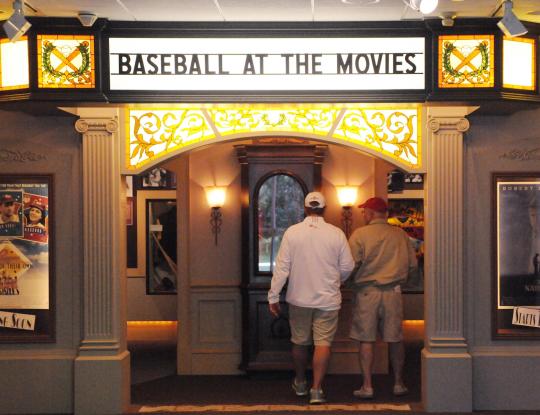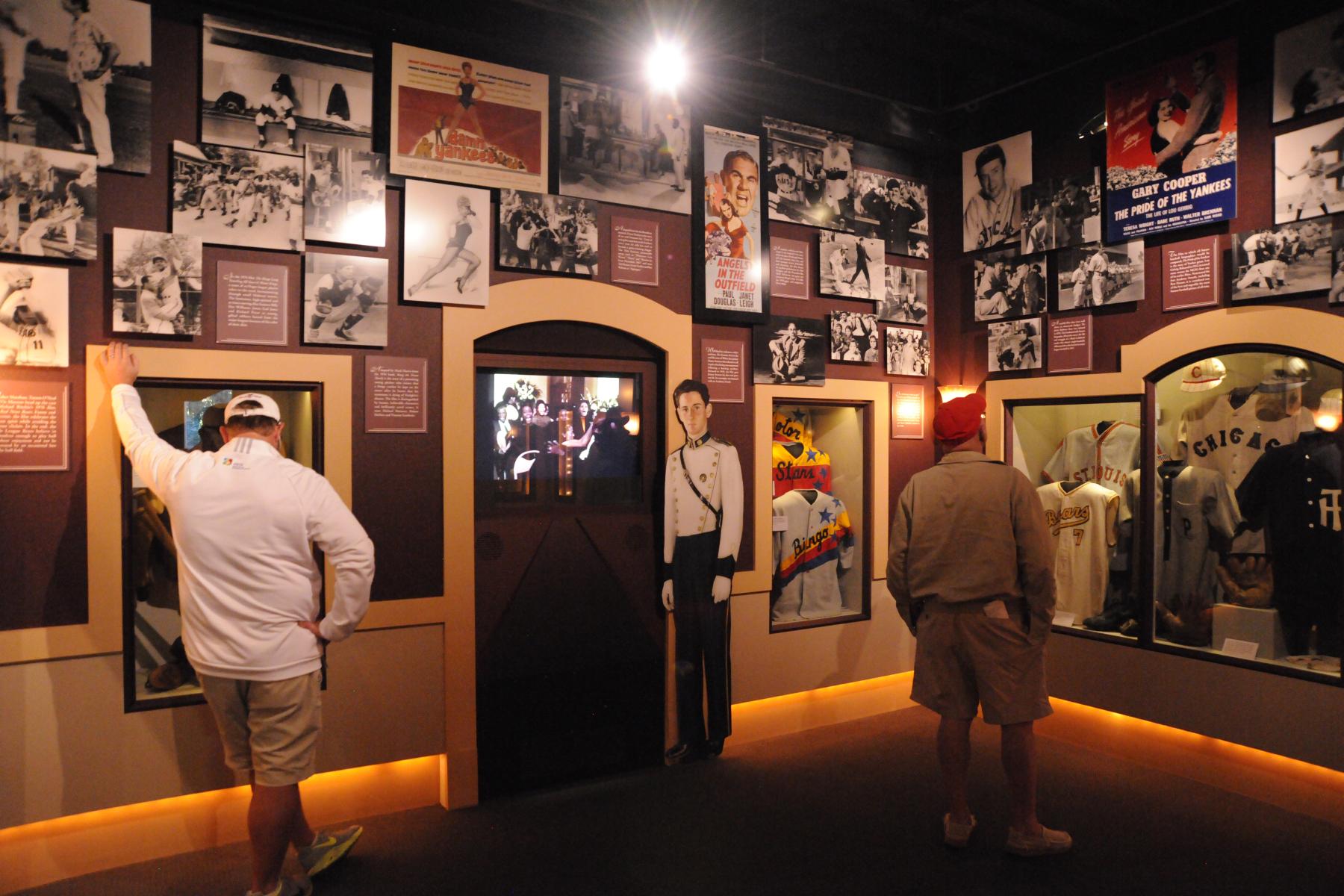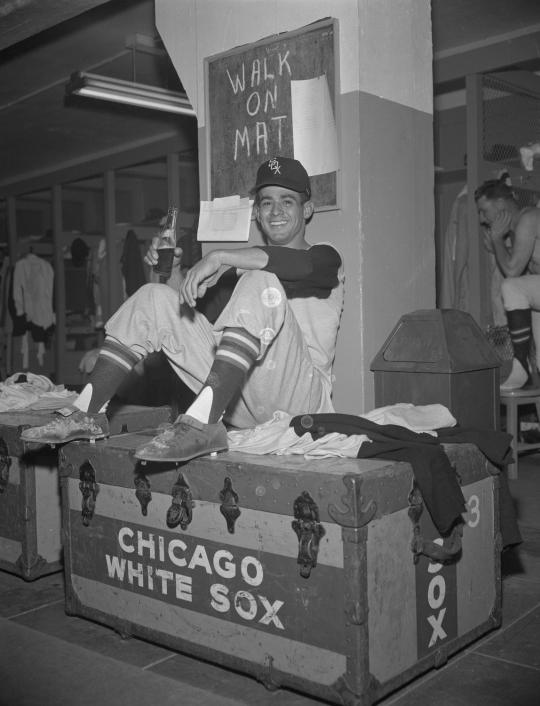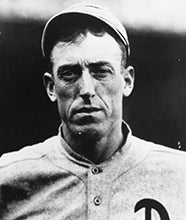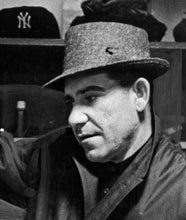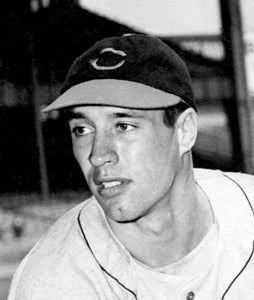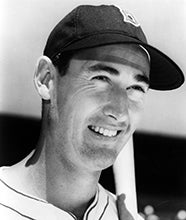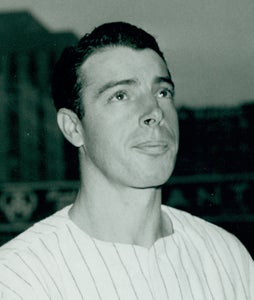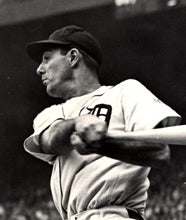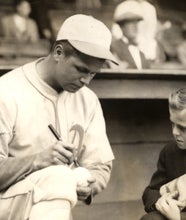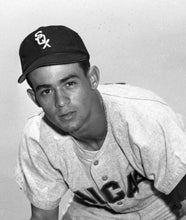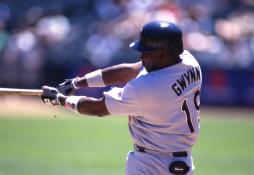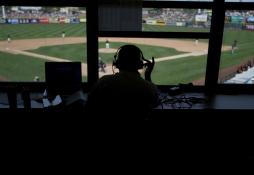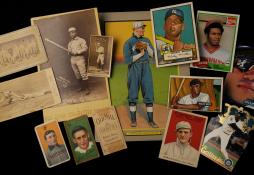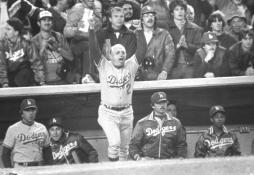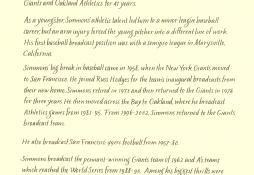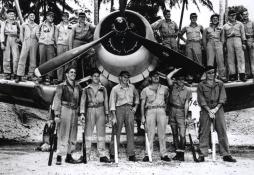- Home
- Our Stories
- Film Fest a hit for fans, filmmakers
Film Fest a hit for fans, filmmakers
From the fans in the theater seats to the filmmakers themselves, there were enough smiles to fill an entire big screen at the National Baseball Hall of Fame and Museum’s Baseball Film Festival Sept. 25-27.
The Museum’s Bullpen Theater played host to the three-day affair in which a dozen baseball-related movies, this year ranging in length from 18 minutes to almost 90 minutes, were presented to near full houses. With subjects ranging from Moe Berg (Spyball), a former catcher turned spy, to Hall of Fame southpaw Eddie Plank (Sidewinder), an early 20th century star, attendees had numerous options.
Fans of baseball during the period between World War II and the Korean War had the opportunity to watch Ballfield to Battlefield and Back: From FDR to JFK, a documentary of made up of the candid home movies shot and narrated by former big league stars George Case and Mickey Vernon. Among the more than 80 players featured in these rare color moving images are such Hall of Famers as Yogi Berra, Joe DiMaggio, Ted Williams, Hank Greenberg, Jimmie Foxx and Bob Feller.
“It’s quite an honor to have our film selected for this festival. I think my dad, who passed away in 1989, would be thrilled, “ said George W. Case III, a producer for the film and the namesake son of the former outfielder who spent 11 seasons in the majors between 1937 and 1947, mainly with the Washington Senators, where he was a four-time All-Star and six-time stolen base champion. “The last time I was here with my dad was in 1975 when Bucky Harris was inducted. Bucky was my dad’s manager in Washington.
“To be in Cooperstown, this is mecca for me. I’ve been around the game ever since I was a baby, so to be up here, where a lot of the Hall of Famers were my dad’s friends, is really a thrill,” Case added. “As far as viewers of the film, I hope they come away with a sense of history. That’s what the Hall of Fame is all about, baseball history, and my dad’s films are all about the history of the game as it was played during the 1940s and ‘50s.”
Another child of a former big leaguer was on hand to represent Gentle Giant: The Andre Rogers Story, which tells of the first player born in the Bahamas to play in the majors. Rodgers, a shortstop for 11 seasons (1957-67) with the Giants, Cubs and Pirates, had little experience with the game but proved to be a natural. Along the way, he had to navigate a racially turbulent period in American history.
“It was awesome for our film to be accepted into this festival,” said Gina Rodgers-Sealy, Andre Rogers’ daughter as well as director, writer, narrator and co-producer of Gentle Giant. “There were several film festivals that were special, but this one was for my dad. I’m just imagining how proud he would have been. He’s not in the Hall of Fame, but he had so many friends that were.
“He was such a humble guy. He would have been raving about my accomplishments as a filmmaker and have nothing to say about him being the subject of the documentary. So I’m happy for him that we were accepted in this film festival.”
According to Rodgers-Sealy, the main goal of the documentary is to inspire children.
“Just to say that you can be from any small town or any little island and the population doesn’t determine your greatness in life,” she said. “That’s who I think daddy would have wanted his story to encourage.”
Another trailblazer was documented with the film Luis Aparicio: 30 Years of Immortality, which recounts the exploits of the longtime shortstop who in 1984 became the first Venezuela native to earn enshrinement in the Hall of Fame. Aparicio, whose 18-year big league career with the White Sox, Orioles and Red Sox ended in 1973, was not only a defensive whiz, holding the record for shortstops in games played, double plays turned and assists when he retired, but also earned nine Gold Glove Awards and led the American League in stolen bases every season from 1956-64.
“I am very excited to be here,” said Isaac Bencid, the Aparicio film’s director who made the trip to Cooperstown from Venezuela. “I felt very happy that our documentary was selected for this film festival. When he found out we had been selected for the film festival we were very happy and did our best to come here.
“We had this opportunity to make this documentary about Mr. Luis Aparicio. He’s a very quiet person but this time when we interviewed him he was very open to us,” he added. “And at the same time we met a lot of friends of his, including Omar Vizquel and Dave Concepcion, also great Venezuelan shortstops, and they really love him as a friend.”
Bencid’s hope for the film is that more people learn about Venezuela’s best big leaguer.
“It was a good time to honor Mr. Aparicio because it was the first time he had a documentary made of his life,” Bencid said. “I want to make people know in Venezuela. I think sometimes that you in the United States know more about Mr. Aparicio than many Venezuelans. Baseball is very important down there but a lot of young people in Venezuela don’t know Mr. Aparicio. What we want to do is honor him and make people know about him.”
Bill Francis is a Library Associate at the National Baseball Hall of Fame and Museum
Support the Hall of Fame
Mentioned Hall of Famers
Related Stories
Cap Selections Announced for Craig Biggio, Pedro Martinez and John Smoltz
Hall of Fame statue garden a gem hidden in plain sight
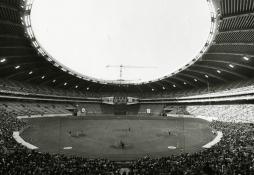
Stargell blasts longest home run in Olympic Stadium history
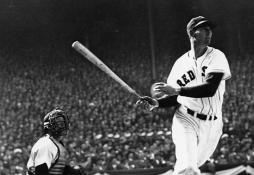
Ted’s pursuit of .400
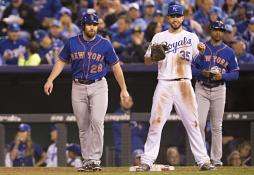
World Series Glory Awaits
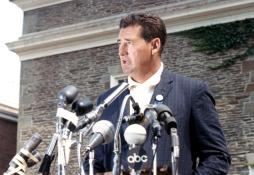
Ted Williams Elected to Hall of Fame
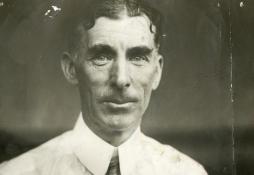
Aging Mack retires after half-century of greatness
Hall of Fame Weekend 2017 to Feature Inductions of Jeff Bagwell, Tim Raines, Iván Rodríguez, John Schuerholz, Bud Selig, July 28-31 in Cooperstown
Museum Partners with Artist Bill Purdom for 75th Anniversary Artwork
01.01.2023
Museum Artifacts from Henry Aaron’s Career Featured at Feb. 3 Event in Atlanta to Honor Legendary Hall of Famer, Philanthropist
01.01.2023
Hall of Fame’s BASE Race Returns to Doubleday Field May 23 as Part of Hall of Fame Classic Weekend
01.01.2023

